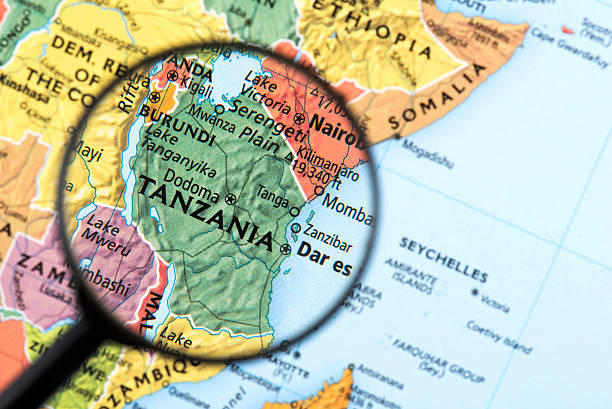TANZANIA: PECULIARITIES, BIZARRENESS AND OTHER THINGS

Tanzania, unlike many other African countries, has been spared internal strife and civil wars that have devastated many African states. This aspect contributes to some internal stability, which, however, did not translate into economic prosperity for the country. Although in the last decade the country has progressed economically with average growth rates of 6-7% a year, the number of Tanzanians living in extreme poverty remains very high. Its main economic activities are linked to agriculture, industry and construction, not forgetting tourism that is closely linked to the diversity and richness of Tanzania's forestry and wildlife land.
Current president, John Magufuli (2015), nicknamed "bulldozer", has sought to redraw public spending by betting on development, reducing recurrent spending significantly and mobilizing efforts to mobilize domestic revenue.
The country's current challenges in terms of economic development are largely associated with the creation of a good investment climate in infrastructure, agriculture and workforce, as the number of young people entering the labour force each year is very important for this country. It has also gradually opened the doors to the private sector.
Not everything has been peaceful for Magufuli since taking office. He has gained fame because of some controversial decisions. Despite winning praise for his anti-corruption stance, he has received a lot of criticism from human rights groups because of the strong crackdown on his ideas by the opposition parties and the media.
Tanzania may even have a "bulldozer" running the country, with all its exceptionalities, beauties, weaknesses and limitations, but what makes me take more account of this East African country are some of its peculiarities or even eccentricities that swarm and are not visible to everybody.
A - Tanzania President has disclosed his salary on TV. It should be noted that the current Vice President Samia Suluhu was chosen by Magufuli and is the first woman to take on such a high office in government.
B - "Liemba", formerly known as Graf Von Goetzen, was a German warship, built in 1913, going through several phases and periods and it was even dismantled, until the English turned it into a ferryboat in 1926, this being the function which it plays down to the present day. It carries cargo and people (mostly merchants) between Kigoma and Mpulungu in Zambia and has even been responsible for the rescue of thousands of refugees. It turns out to be the major enabler of Lake Tanganyika's trade (the world's largest lake), and is a vital link for people living around the Great Lakes area.
C - Drones help fight malaria in Tanzania. Malaria, transmitted by mosquitoes, is one of the largest plights that has ever devastated the African continent. Millions of mosquito nets have been distributed across sub-Saharan Africa to combat this disease.
Now, Aberystwyth University of Wales, in partnership with Zanzibar's Malaria Elimination program, is combating malaria prevention with the use of drones to capture images of large areas of still water used by mosquitoes to reproduce. The main goal is creating accurate maps of potential habitats so that they can be treated with larvicides. The researchers also plan to incorporate the drone images into smartphones to aid larvicide spraying teams and better tracking progress.
D - In parts of Africa, albinos are being hunted and harvested for their body parts.
In Tanzania alone, at least 75 albinos have been killed since 2000. Unfortunately, their life expectancy is not high, because the lack of melanin in albino skin makes them particularly wary of the sun in Africa.
The Amnesty International recently enhanced that "the macabre trade is also fueled by a belief that people with albinism contain gold, and another belief is that a person with albinism can cure HIV." Witch doctors are revered by many in the rural communities. Some spread the belief that albino body parts can bring luck and fortune. Some albinos choose to live in isolated protectorates and also because they are ashamed of their children.
Witchcraft is taking very seriously. A few months ago, Tanzanian court charged 32 people with murder after five women suspected of witchcraft were beaten to death, and their corpses burned. Hundreds of suspected witches are murdered in the east African country each year.
E - According to a report of the Human Right Watch, Tanzanian migrant domestic workers in Oman and in the United Arab Emirates (UAE) face excessive working hours, unpaid salaries, and physical and sexual abuse. The abuses include beatings, and exploitation of all kind. Some of the cases that were denounced, amount to slavery or labour trafficking. This situation is facilitated mainly by abusive visa-sponsorship rules in Oman and the UAE and loopholes in the employment laws of the Tanzanian government.
F - The country has designated 25% of its land to wildlife sanctuaries and national parks. It is among the highest in the world, and the total area is greater than the size of Germany. As a consequence, tourism is one of the greatest assets.
Recently, Tanzania's largest park, Ruaha, has been named one of the 21 best places to visit in the world by National Geographic.
G - Zanzibar has the cloves as its greatest exlibris. The main foreign export of Zanzibar is cloves. Also known as the Spice Islands, it is the largest producer of cloves in the world.
Miguel Verde - Senior Consultant, Professor of International Relations